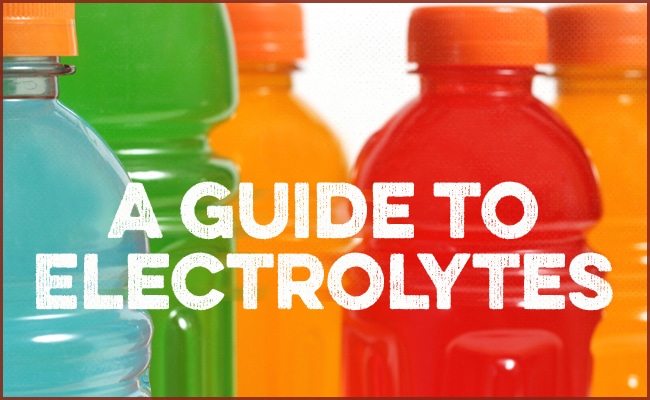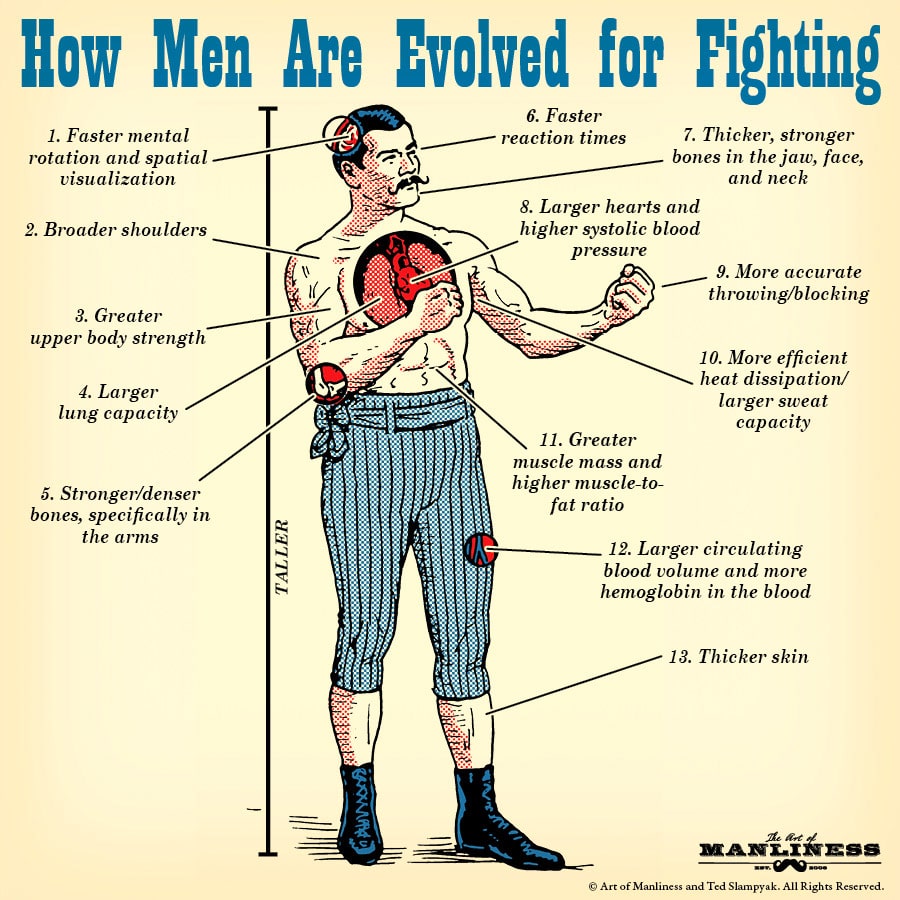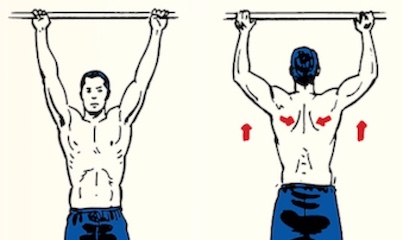
In the comedic, dystopian film Idiocracy, set in 2505, all water in the United States has been replaced with a Gatorade-like drink called Brawndo: The Thirst Mutilator. They even water the crops with Brawndo because Brawndo supposedly “has what plants crave”: electrolytes.
Well, replacing plain H20 (which, in Idiocracy, is only used in toilets) with Brawndo kills the crops, threatening the future of humanity. Thankfully, a guy from the past (played by Luke Wilson) convinces people living in the future to start watering their crops with “toilet water” instead of Brawndo and thus saves society from collapse.
While Idiocracy is satire, if you walk down the drink section of your nearby convenience store, you might get the impression that we’re on the path to thinking every living creature needs more electrolytes and replacing all of our fluids with those that include them. There are rows and rows of drinks boasting about the amount of electrolytes they contain and how they’ll quench your thirst. Tweens across America are clamoring for their parents to buy them Prime, an electrolyte drink made by YouTube-provocateur-turned-professional-wrestler Logan Paul.
But do we actually need all these electrolyte-infused beverages? Do they boost your health and athletic performance?
To get to the bottom of these questions, I talked to Dr. Robert Kenefick, a scientist who has spent his career researching hydration and electrolytes and even worked for the U.S. Army to help find ways to keep soldiers healthy and hydrated on the battlefield. He also heads the research department at Entrinsic Bioscience, which studies and develops electrolyte supplements.
Here’s what I learned from Dr. Kenefick.
What Are Electrolytes and Why Are They Essential?
Electrolytes are minerals that carry an electrical charge when dissolved in water. They play a crucial role in maintaining proper bodily functions. Some of the main electrolytes include sodium, potassium, magnesium, chloride, and phosphate. These minerals regulate fluid balance, support nerve and muscle function, and facilitate metabolic processes.
Dr. Kenefick said that the most significant role electrolytes — particularly sodium — play when you’re sweating bullets is helping you retain fluids so you don’t get dehydrated. “Wherever sodium goes, water follows,” Dr. Kenefick told me. “So if you have sodium in a beverage, you will retain the water to a greater degree than the same amount of water over a period of time compared to when you don’t.”
How Do You Lose Electrolytes?
We lose electrolytes primarily through four bodily excretions: sweat, pee, poop, and vomit.
The amount of electrolytes you lose via sweat will depend on factors like environment temperature, exercise intensity, and your sweat rate. Some people tend to excrete more electrolytes in their sweat than others. That just comes down to genetics. You can tell if you’re a big electrolyte excreter by looking at dark workout clothes after your sweat has dried; if you see some white streaks, that indicates you’ve let off a lot of minerals.
Dr. Kenefick told me the biggest way people lose electrolytes is when they get sick and vomit and have a lot of diarrhea, noting that “You actually lose a lot more electrolytes through diarrhea than you do through sweat.” Young children lose a lot of electrolytes when they get a stomach bug and have fluids coming out of both ends, which is why doctors typically recommend that parents give their kids an electrolyte beverage when they’re sick.
Can You Develop an Electrolyte Deficiency?
The big selling point of electrolyte beverages is that they can help you replenish an electrolyte deficiency.
But Dr. Kenefick pointed out that electrolyte imbalances don’t happen all that much except in extreme circumstances like where you’re throwing up and vomiting from an illness or exercising day after day in hot weather.
“The body does a very good job of maintaining electrolyte balances without you having to do much,” Dr. Kenefick explained. “For example, potassium is very tightly regulated in the body. Your kidneys know when to hold on to potassium instead of excreting it and when to excrete more instead of hold on to it.”
Moreover, you’re probably getting all the electrolytes you need from eating. Electrolytes are so strongly associated with sports drinks these days, you can almost forget that the same minerals you get from Gatorade are found in food, too.
“If you have a relatively normal American diet, you’re going to get the electrolytes you need from your food to be healthy,” Dr. Kenefick said. “It’s just in extreme situations where you’re doing a lot of strenuous exercise day after day after day in the heat or when you’re really sick that imbalances might occur.” That’s because a regular diet isn’t sufficient to compensate for the electrolytes lost in these circumstances.
What Happens When You Run Low on Electrolytes?
So let’s say you sweat bullets for several days in a row and have low electrolytes. What will happen to you?
It’s your ability to retain fluids that will be most affected. “The primary thing we’re worried about when it comes to electrolytes is that they help your body stay hydrated,” Dr. Kenefick said. If you don’t have enough electrolytes, your body is going to have a harder time keeping the fluids it needs for normal functioning.” Dehydration can lead to a loss of strength and stamina and to heat exhaustion.
Over the long term, losing a lot of electrolytes can leave you depleted in the minerals that not only help you hydrate, but also perform other health-facilitating functions in the body.
Does Having High Levels of Electrolytes Boost Athletic Performance?
Maybe. We do know that adequate hydration is necessary for athletic performance. If your muscles aren’t hydrated, you’re going to feel sluggish. A 2007 review article suggests that inadequate hydration can reduce strength by approximately 2%, power by about 3%, and high-intensity endurance by up to 10%.
A few studies have shown that athletes who consume an electrolyte + carbohydrate beverage perform better than those who hydrate with water. But these studies are limited. In some instances, the difference in performance wasn’t statistically significant. It looks like the biggest performance boost from drinking an electrolyte beverage comes if you’re dehydrated. If you’re already well-hydrated before an athletic event, drinking a sports drink is probably not going to improve your performance.
You may have also heard that electrolytes prevent muscle cramping — is that true?
Researchers still aren’t sure what causes muscle cramping. A few studies have shown that drinking an electrolyte supplement can help keep your muscles hydrated and thus reduce the likelihood of cramping, but that evidence is limited. It might help; it might not.
So Do I Need to Take An Electrolyte Supplement?
If you’ve read everything above, you know the answer is probably no.
As Dr. Kenefick told me multiple times, electrolyte supplementation is only necessary in extreme circumstances. If you or your kid is sick and are losing a lot of fluids, drinking an electrolyte supplement would be beneficial for rehydrating. It would also be beneficial if you’re doing a lot of strenuous exercise or working day in and day out in the heat.
If you’re just lifting weights indoors or running a few miles every other day, you probably don’t need to take an electrolyte supplement. Your regular diet and water consumption will likely be sufficient to give you the electrolytes and fluids you need to stay healthy and hydrated. When you consume sports drinks in these circumstances, you’re probably just peeing out the electrolytes — you’re pissing away your money.
Can You O.D. on Electrolytes?
Dr. Kenefick noted that a growing concern that has come up with the proliferation of electrolyte supplements is people overdosing on them.
“For the most part, your kidneys do a good job handling excess electrolyte intake,” Dr. Kenefick told me. “Your body has certain hormones that tell the kidneys to get rid of excess electrolytes that it doesn’t need.”
He did say, however, that people with high blood pressure need to be careful with drinking electrolyte supplements because they can increase their sodium levels.
What’s the Best Kind of Electrolyte Beverage?
Alright. So let’s say you find yourself in a circumstance where consuming a sports drink or electrolyte supplement would be beneficial. What’s the best kind to take?
Dr. Kenefick recommends looking for one that combines electrolytes with glucose; sugar is important for the optimal absorption of electrolytes. As Dr. Kenefick explained, “Glucose is a sodium cotransporter. When glucose goes through the intestinal wall, it pulls sodium with it. And as I said earlier, where sodium goes, water goes with it. So a glucose plus electrolyte beverage is really good at helping you hydrate.”
With that said, you’ve got to be careful with this. “Pedialyte puts way too much glucose in their drinks. They’re basically sugar bombs,” Dr. Kenefick said. “Yeah, the sugar helps make the salty-tasting electrolytes go down easier, but it’s probably way too much sugar.”
What’s more, in some instances, glucose can actually stimulate your gut to not absorb nutrients like electrolytes, which is why Dr. Kenefick is working on developing an electrolyte supplement that uses amino acids to carry sodium and water to the body: “You avoid the issue of glucose getting in the way of absorption, and you don’t have to worry about drinking excess sugar. The use of amino acids in electrolyte supplements is the next revolution in hydration science.”
Before that revolution arrives, look for an electrolyte beverage that has a little but not a lot of glucose — around 13 grams.
What should the electrolyte makeup of that beverage or supplement look like?
Dr. Kenefick noted that back in the 1950s, scientists thought a rehydration beverage should have the same concentration of electrolytes as you lose in your sweat. “Those electrolyte levels were too high. You didn’t need that much, and it just resulted in a nasty-tasting drink,” he said.
The WHO has a recommendation for the ideal composition of a rehydration drink:
- Sodium chloride: 2.6 grams
- Trisodium citrate: 2.9 grams
- Potassium chloride: 1.5 grams
“Most of the popular electrolyte beverages on the market have more than this, “Dr. Kenefick observed. “Again, it won’t hurt you to drink an electrolyte beverage with more than the WHO recommendation, but it probably won’t do much for you either.”
Bottom Line
Electrolytes are important for a lot of bodily functions. They play a key role in keeping you hydrated. But unless you’re sick and losing fluids or doing a lot of physical activity in the heat, you probably don’t need to consume electrolyte-fortified beverages.
And you definitely shouldn’t water your tomato plants with them.






